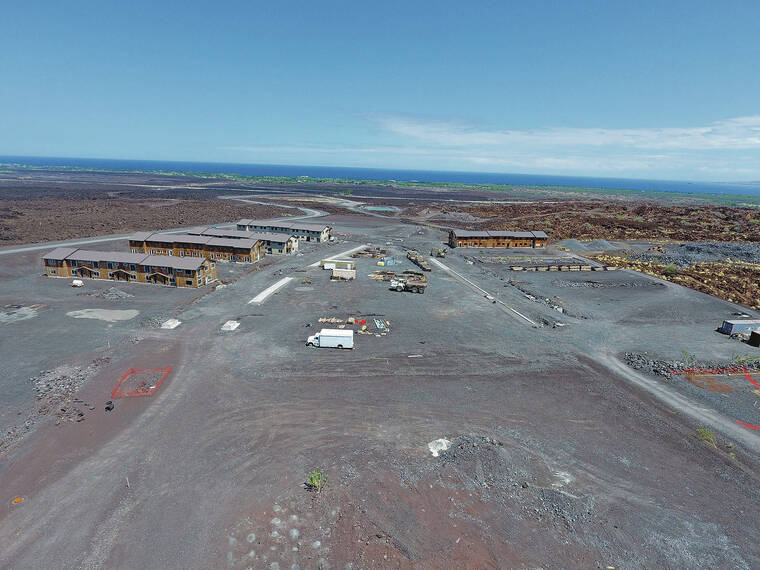A federal judge has dismissed a 2017 lawsuit filed by a company seeking $360 million from the state over an adverse regulatory action involving a mostly undeveloped $1 billion Hawaii island housing project.
U.S. District Court Judge Susan Oki Mollway ruled against Nevada-based DW Aina Le‘a Development LLC on May 25.
The decision represents a second major victory for state attorneys against developers of the planned Villages of Aina Le‘a community near Waikoloa that dates back to the 1980s.
Bob Wessels, a DW principal, said the company intends to appeal and sustain its pursuit of damages related to a state Land Use Commission decision.
“They won this round,” he said of the state.
In 2011 the LUC rescinded its long-standing approval to create an urban community on the site previously limited to agricultural use because the developer failed to meet an agreed-upon deadline to build a certain number of affordable homes.
The LUC’s decision was deemed improper by a state Circuit Court judge in 2012, and the Hawaii Supreme Court in 2014 rejected the commission’s appeal and restored the original approval to develop the project on 1,060 acres.
However, DW and one other developer have failed to obtain meaningful damages for the temporary taking of development rights on the Aina Le‘a site.
In a separate federal lawsuit brought against the state by one of the project’s past developers, Bridge Aina Le‘a Inc., state attorneys agreed to a $1 million settlement in 2016, but the case went to trial after the Legislature refused to approve funding. In 2018 a jury ruled in favor of Bridge, but Mollway awarded the developer $1 in damages.
DW filed its lawsuit in 2017 and had prevailed against challenges in appellate courts over a statute- of-limitations issue before the case resumed in U.S. District Court in Honolulu.
Mollway ruled that DW, which got involved in the development project in 2007 to deliver affordable housing, didn’t have standing to bring a claim against the state because the company had assigned all potential claims related to the project to another firm, Aina Le‘a Inc., which is also led by Wessels.
DW tried to show that Aina Le‘a, which filed for bankruptcy in 2017 and emerged with reorganized debts in 2019, had transferred any claims against the state back to DW before the state moved to dismiss the case. But Mollway concluded that no evidence of that was presented.
“This court notes that DW has frustrated this court’s efforts to ascertain which entity had the right to sue at what time,” the judge’s order said.
Mollway also rejected a bid by DW to add Aina Le‘a as a plaintiff in the lawsuit.
Wessels said Aina Le‘a remains committed to developing the project, now called the Town of Aina Le‘a, after spending $145 million on work to date, not including $24 million spent by DW building a still-unfinished initial phase of about 40 affordable rental townhomes.
Plans for the community date back more than 30 years, and an original LUC approval to urbanize the site for development was granted in 1989 to California-based Signal Puako Corp., which intended to build 2,760 homes along with a golf course and retail center.
A Japanese developer, Nansay Hawaii Inc., acquired the property in 1991 and proposed six golf courses and 1,550 homes but was tripped up by economic challenges that led to foreclosure and an acquisition by Bridge in 1999.
Bridge, an affiliate of a Saipan-based real estate lending firm, convinced the LUC to reduce a 60% affordable-housing requirement to 20% to make its plan for 2,300 homes and two golf courses financially feasible.
Wessels said Aina Le‘a is working to obtain financing that would allow the company to resume development. “We’re moving forward,” he said.

